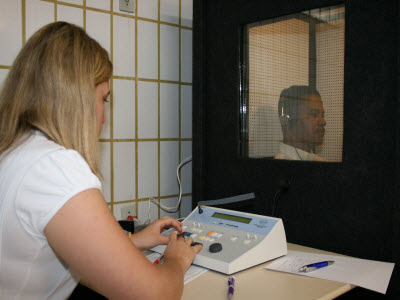Top 12 Child and Family Social Worker Interview Questions
1) Explain what are the duties of a social worker?
Duties of the social worker includes
- Helping clients or patients to face crises
- Helping individual to resolve problems like drug addiction
- Helping family to resolve their internal conflict
- Helping children to overcome the emotional stress due to family problems
- Helping patient to overcome the depression due to critical disease like cancer
- Recommending families and children to other services if needed
- Referring adoptive homes to children’s who have no parents or caretakers
2) What all areas social worker can work?
Social worker can work in groups or in the organization, so their field is not limited to one area or country. They can work anywhere in the world like
- Nursing homes
- Health care institute
- Refugee camps
- With families or individually, etc.
3) What is the different levels social worker graduates can work?
Different levels at which social worker graduate can work is
- Community development workers
- Case managers
- Field workers
- Youth workers
- Care and protection workers
- Probation officers
- School social workers
- Care and protection workers
- Policy analyst and researchers
- Educators and service co-ordinators
4) Explain how you would tackle a situation where client is not ready to listen due to mental disorder or unable to communicate with you due to a communication problem?
- Under such situation, as a social worker, keep yourself calm and find an alternative way of communication
- Demonstrate them by giving example and show him what to do
- Use sign language, gestures, picture and another form of communication. It is the best way to converse with people who has problem communicating
5) Being a social worker how you get closer to your target group?
To understand the client or patient problem, it becomes important for the social worker to get closer to target group. To do that, you have to follow the following things
- Get rid of your fear: Spend time together with them and get over the fear of getting offended by them
- Be a good listener: Listen to their problems patiently, and later give them your shoulder to back them as a friend and as a helper
- Be as they are: Don’t wear something or make your personality huge such that they feel inferior to you. Try to be just like them
6) Explain how social worker helps families having children with disabilities?
Social worker can help to figure out many things like
- How children feels about the disability
- What a child and his family members need
- Will refer to the organization or resources in the community that might be of help
- Help you with applications for services
- Connect with other support groups
- Will boost child confidence by introducing children having same disabilities
7) How social workers can be helpful to normal children?
For normal children, social worker can be helpful in many ways like dealing with
- Behavior problems
- Emotional issues
- Health, hygiene and safety
- Getting along with friends and adults
- Anger management
- Coping skills
- Grief
- Substance abuse, etc.
8) Explain what is family therapy and home-based family therapy?
- Family Therapy: It is one of the therapy’s type, where social worker sees the client like members of the family and identifies the problems within the context of the family
- Home Based Family Therapy (HBFT): Some families receives home based family therapy. In this therapy social worker take a visit to solve the issues like solving family conflicts, parenting, etc.
9) Explain what are the main reasons children often becomes a rebel to their parents?
Main reasons children become rebel to their parents are
- When parents are not available emotionally or alert to their child needs
- Handling young babies roughly
- Giving less attention to their nutritional needs
- Beating and abusing when they are young
- Locking children in their rooms for longer periods
- Trying to take complete control over the pre-pubescent child
- Expecting helping hand from children to take care of their young siblings and in domestic help
10) Explain how social workers help to parents to deal with trouble teenagers?
Social worker gives some useful advices to parents dealing with troubled teenagers like
- Listen: Listening teenagers about their problems without judging them or giving advice resolves problems half of the time
- Support teenagers: Supporting teenagers when they needed, helps them to relieve from the stress
- Try to fit in their shoes: Find some common topics to discuss and include them in conversation like some sports or favorite dish
- Ready for rejection: Teenager may not always comply with your points or projections; chances are always that you differ in opinion and get rejected. Don’t get offensive on that, stay relax and allow your teen to cool off and later put your point
- Know your stress level: Try to avoid conversation when you are off the mood or under stress it may worsen the matter.
11) Explain how social worker can be helpful to a family having a mentally challenged members?
Social worker can be helpful by giving
- Direct services: Provides their service in families, groups and couples in the form of therapy, crisis intervention, advocacy, co-ordination of resources, etc.
- Community development: Scrutinizing and identifying the mental disorder by the help of community services
- Consultation and supervision: Carrying out clinical supervision, performing regular audits and thereby maintaining quality, reviews of other social workers involved in the service, etc.
- Education and program management: Educating patient families about the disease through conference, seminars and lectures
- Case management: Communicating inter-disciplinary services to a specified client, group or population.
12) Explain how social worker can be helpful in resolving family conflicts?
- Act as mediator: In such circumstances, social worker can play a role of mediator. They can listen to both the person and try to give a solution that is unbiased
- Counselling: Refer them to private counsellor or institute if their conflict is affecting your physical or mental health
- Refer to local authorities: If the conflict is not handled by counsellor or social worker, then they can refer family to local authorities that are providing mediation services.






